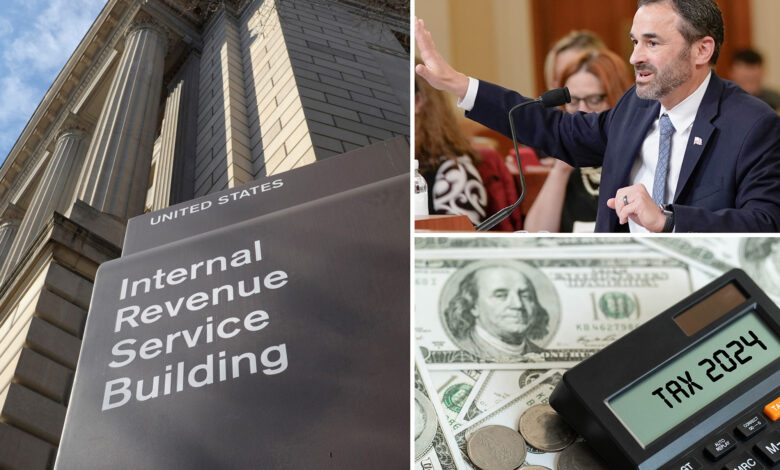IRS going after Americans who earn up to $1M but don’t file taxes

The Internal Revenue Service is going after 125,000 high-earning Americans who raked in more than $400,000 annually but did not file tax returns between 2017 and 2021.
Beginning this week, some 25,000 tax-skirting earners bringing in more than $1 million annually will receive a non-compliance letter from the US revenue service.
The notice also will be sent to more than 100,000 people with incomes between $400,000 and $1 million between tax years 2017 and 2021, the IRS said in a news release.
As of Thursday, “about 20,000 to 40,000 letters will go out each week, beginning with the filers in the highest-income categories,” the IRS noted.
The agency said it learned of these high-wealth tax cheats from “third-party information — such as through Forms W-2 and 1099s,” and advised anyone receiving a non-compliance letter to “take immediate action to avoid additional follow-up notices, higher penalties as well as increasingly stronger enforcement measures.”
In the US, tax evasion is regarded as a felony criminal offense and is punishable with a prison sentence of up to five years.
Though consequences vary by state, places like California slap offenders with fines as high as $20,000.
Up until now, “severe budget and staff limitations” prevented the IRS’s non-filer program from running smoothly.
The IRS attributed the 2022 passing of the Inflation Reduction Act — which provided $80 billion in additional funding to the statutory body, most of which is dedicated to closing the tax gap by specifically enforcing tax compliance by the wealthiest tax evaders, according to the White House.
The initiative was also part of a directive from Treasury Secretary Janet Yellen to IRS leadership not to increase audit rates on people making less than $400,000 a year annually, according to Fortune.
“At this time of year when millions of hard-working people are doing the right thing paying their taxes, we cannot tolerate those with higher incomes failing to do a basic civic duty of filing a tax return,” IRS Commissioner Danny Werfel said in the release.
Meanwhile, law-abiding Americans are due to submit their tax returns for the 2023 fiscal year to the IRS no later than April 15.
Though filers have notoriously procrastinated the filing process until the dreaded Tax Day this year, struggling Gen Z and millennial workers are rushing to file their taxes in hopes of a fat refund.
In fact, 54% of taxpayers in the age groups are rushing our documents to the proverbial post office this time around, hoping to get those 2023 refunds that much quicker, according to a new survey commissioned by Credit Karma.
That number includes 64% of Gen Z filers — aged between 11 and 27 — and 65% of Millennials — who are 28 to 43 — with the report’s authors noting the sense of urgency, saying that many are depending on hoped-for refunds to subsidize their earnings and pay down debt (34%).
In addition, 38% of Gen Zers and 40% of Millennials confessed to depending on refunds to pay their bills, including the basics like rent and groceries — with more than half blaming their financial struggles on rising cost of living.
In all, the IRS is reportedly expecting 128.7 million individual tax returns to be filed by the April deadline this year.




